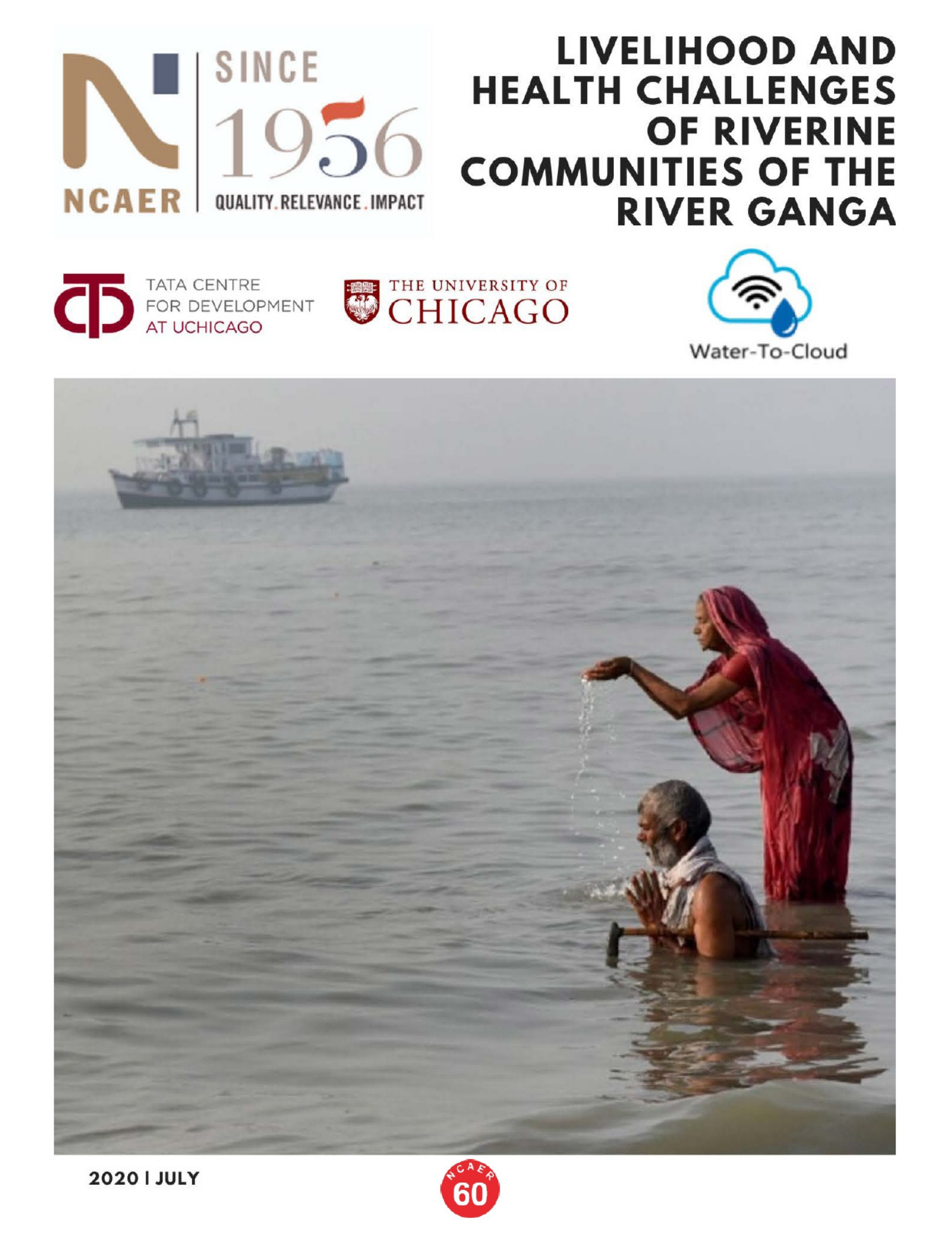Livelihood and Health challenges of riverine communities of the River Ganga
Sanjib Pohit
D B Gupta
Soumi Roy Chowdhury
Mohit Pandey
Rishabh Singh
July 2020
This project jointly conducted by NCAER and the Tata Centre for Development at UChicago, studies the health and livelihood implications of a particular riverine community, that is, fisher folk, along selected polluted stretches of the Ganga river. The study conducted in two phases entails conduction of water experiments using censors, along with in-person interviews and Focus Group Discussions (FGDs) of fishermen in the two states of West Bengal and Uttar Pradesh. The TCD team gathered high resolution spatially and temporally varying water data through submersible automated sensors. These sensors which were attached to a boat would sail on a pre-defined route of the river and collected real time information on pollution parameters. The NCAER research team undertook a survey of 1600 fishermen to understand if the levels of pollution have adversely affected their health, income, and fish catch over the years. The study also delve deeper into understanding the socio-economic challenges that the fishermen are facing and their perception with respect to the causes and implications of pollution. NCAER also conducted a contingent valuation exercise to analyze fisherman's willingness to pay for good quality of water versus their willingness to accept compensation on account of their livelihood loss.
Computable General Equilibrium Modelling and Policy Analysis







